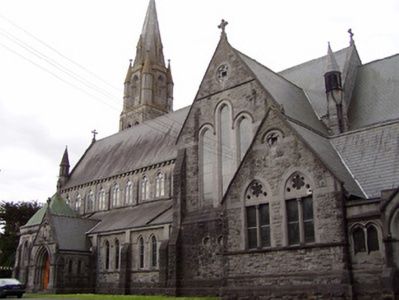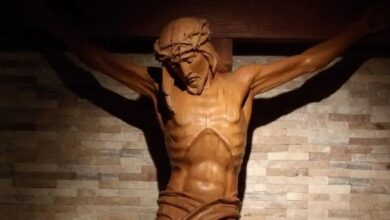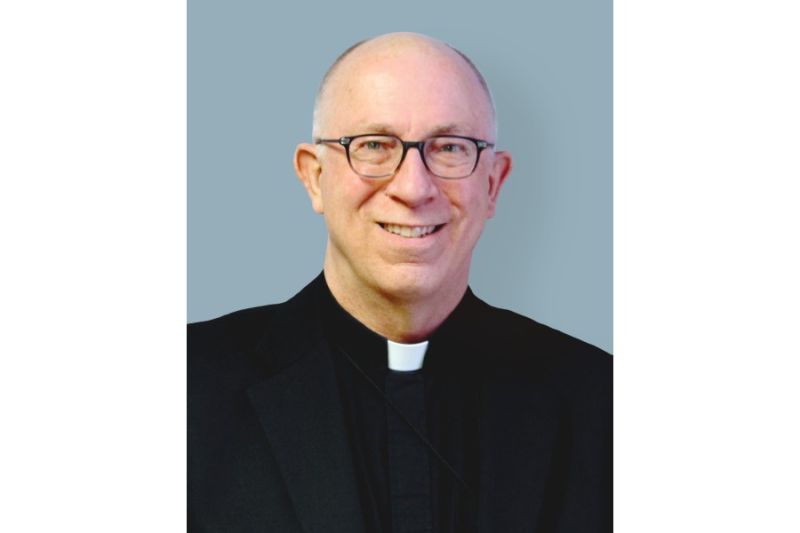Irish priest calls musician Shane MacGowan’s raucous funeral Mass ‘a scandal’

 Shane MacGowan’s funeral Mass took place Friday, Dec. 8, 2023, at St. Mary of the Rosary Church in Nenagh, County Tipperary, Ireland. / Credit: National Inventory of Architectural Heritage
Shane MacGowan’s funeral Mass took place Friday, Dec. 8, 2023, at St. Mary of the Rosary Church in Nenagh, County Tipperary, Ireland. / Credit: National Inventory of Architectural Heritage CNA Staff, Dec 14, 2023 / 16:00 pm (CNA).
A Catholic priest in Northern Ireland has called last week’s funeral Mass for Irish musician Shane MacGowan a scandal.
“It was an abuse of what the Mass is and what the Catholic funeral liturgy is all about,” said Father Paddy McCafferty, pastor of Corpus Christi Parish in West Belfast, according to BelfastLive, an online news site.
MacGowan, 65, founder and former lead singer of the Pogues, a band that fused Irish music and punk rock, died Nov. 30 after a long illness. He is best known as the co-author and co-singer of “Fairy Tale of New York,” a 1987 Christmas song that still enters the charts some 36 years after its original release.
Though a heavy drinker, drug user, and womanizer for much of his life, MacGowan identified as a Catholic. He had a statue of Mary in his hospital room and he received the last rites of the Church shortly before his death, his family said.
MacGowan’s funeral Mass took place Friday, Dec. 8, at St. Mary of the Rosary Church in Nenagh, County Tipperary, Ireland. His sister Siobhan MacGowan said Shane sometimes accompanied their late mother to Mass there.
His funeral Mass last week began with individual displays of 19 objects that were meaningful to MacGowan, which were held up for the congregation between the altar and the coffin by the principal celebrant, Father Pat Gilbert. They included a statue of Buddha, a DVD of “The Godfather,“ and a copy of James Joyce’s “Finnegan’s Wake.“
The Buddha statue was included “because Shane was a lover of all religions, and particularly Buddhism,” said MacGowan’s wife, Victoria Mary Clarke, who described each object at the lectern before it was given to the priest.
After Gilbert held up the statue over his head with two hands grasping the bottom, Clarke said: “Is that the first time they’ve held up a Buddha in a Catholic church?”
Most of the music during the funeral Mass was nonreligious.
After the first reading, from the Book of Revelation, a man and woman performed “Haunted by the Ghost,” a love song MacGowan composed.
The second reading was also from the Book of Revelation, followed by a live performance of “Rainy Night in Soho,” another of MacGowan’s love songs.
A third reading, from St. Paul’s First Letter to the Corinthians, was done by Bono, the lead singer of U2, by recording.
The prayers of the faithful were followed by a performance of “I’m a Man You Don’t Meet Every Day,” a Scottish music hall song that MacGowan sang backup on for the Pogues’ second album.
After Communion, two singers and a band performed “Fairy Tale of New York,” a Christmastime song that at one point depicts a heated argument between two lovers that includes vulgar words for a condom, a homosexual man, and a woman’s rear end, along with the word “slut” and a slang word for heroin.
The raucous version of the song got pewsitters clapping and some dancing in the aisles.
Father McCafferty told BelfastLive that the musical tributes to MacGowan should have taken place in a secular setting such as a hall and not in a Catholic church during Mass.
“The introduction of all these elements into that funeral Mass frankly was a scandal and it shouldn’t have happened,” McCafferty said, according to a story published by BelfastLive on Wednesday, Dec. 13.
On Thursday, CNA contacted McCafferty, Gilbert, and Bishop Fintan Monahan, the bishop of Killaloe, the diocese where the funeral Mass took place, but could not immediately reach any of them.
The Diocese of Killaloe does not appear to have guidelines for funerals on its website.
But to the south, the Diocese of Cloyne’s “Guidelines for the Celebration of Funerals” says that “the guiding principle is that music during the liturgy should be liturgical or other sacred music …” and that “hymns that convey the Christian meaning of death, offer prayer for the dead, and express the hope of eternal life … should be used in the funeral liturgy.”
The Cloyne Diocese guidelines also envision that “extraordinary pastoral circumstances will sometimes necessitate that the funeral rites be adapted to meet particular needs.”




